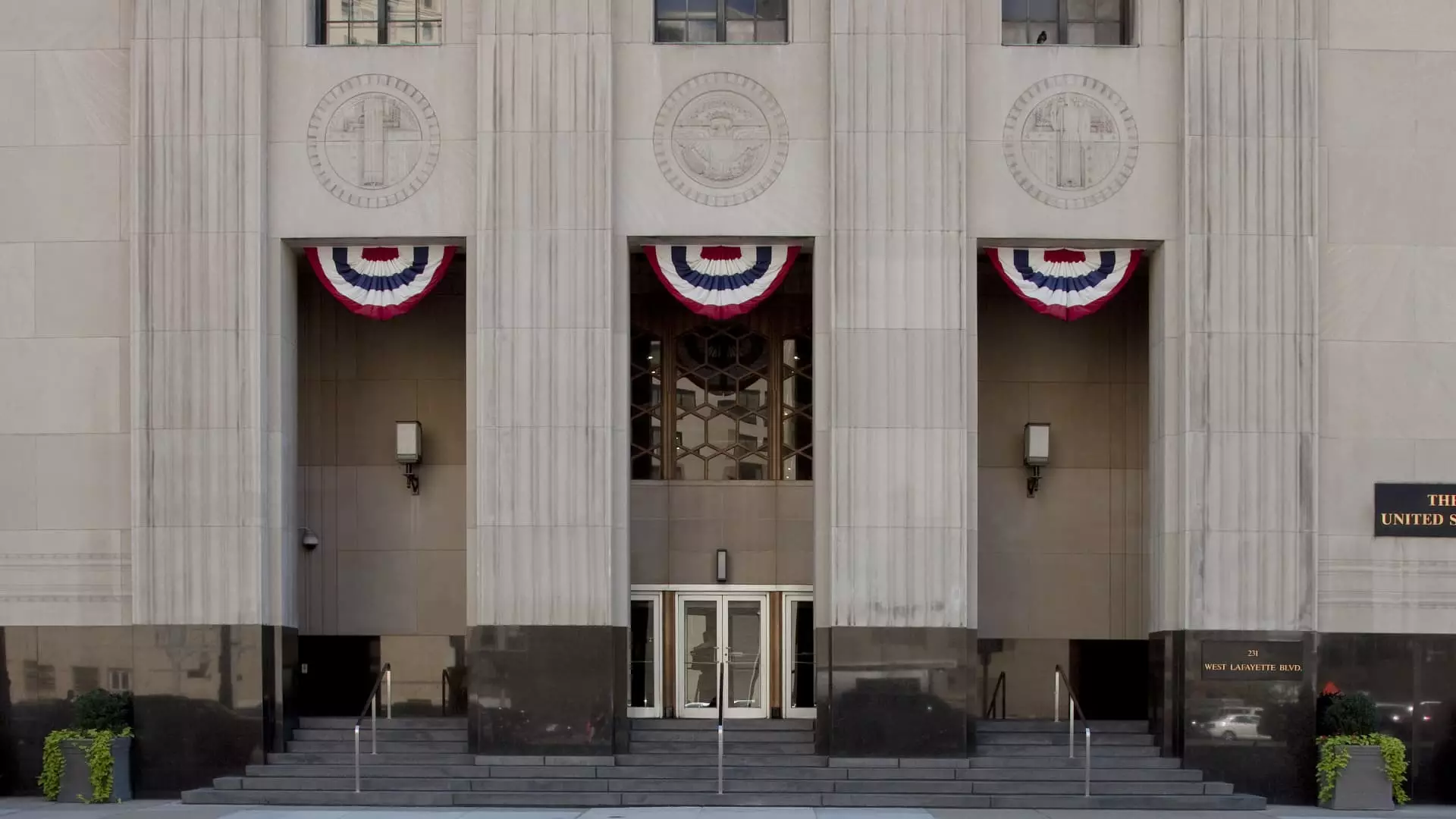In an extraordinary and alarming twist, a case has emerged from the University of Michigan that raises profound questions about the nexus of academia, ethics, and national security. The alarming charges filed against Yunqing Jian, a postdoctoral researcher, and her boyfriend, Zunyong Liu, revolve around the alleged smuggling of a dangerous biological pathogen—a fungus capable of causing catastrophic damage to crops and potentially harming human health. This egregious act is not merely a breach of scientific integrity; it is a stark reminder of how sometimes the very institutions dedicated to pushing the frontiers of knowledge may also harbor individuals willing to jeopardize public safety for the pursuit of personal ambition.
Operation Enigma: The Details Unraveled
The precise moments that led to the discovery of this perilous substance are as convoluted as they are concerning. Liu was intercepted at Detroit Metropolitan Airport, where border officers discovered the fungus, Fusarium graminearum, cleverly concealed within his backpack. His initial claim of ignorance rapidly unraveled, revealing an intent to subvert U.S. customs regulations. The discovery of chat logs between Liu and Jian further compounds the gravity of their actions. They candidly discussed the logistics of smuggling seeds into the United States, a conversation laced with troubling implications about their motivations and foresight.
Jian, who has a significant academic career at the University, initially distanced herself from Liu’s incriminating actions, claiming ignorance of his smuggling endeavors. However, the evidence suggests otherwise, creating a chilling image of a concerted effort to breach ethical and legal boundaries in the name of scientific desire. What we see is not merely a lapse in judgment but, rather, a disturbing willingness to engage in activities that could have immense ramifications.
The Broader Implications of Their Actions
The implications of this case extend far beyond the personal misdeeds of two individuals. Fusarium graminearum is no ordinary fungus; it has been responsible for economic devastation valued in the billions—affecting food supplies and livestock health around the globe. Not only does this pathogen attack crops, leading to significant agricultural losses, but it also poses risks to human health, potentially causing vomiting and reproductive defects. The thought of this fungus being propagated from within an American research facility is an anxiety-inducing thought that should concern us all.
In an era where national security is under constant scrutiny, particularly concerning foreign influence in American institutions, this incident raises critical questions about the accountability of academic entities. The University of Michigan’s denial of any financial or academic linkage to the Chinese government is a necessary proclamation but also an evasive maneuver that does little to extinguish public apprehension regarding foreign entities infiltrating vital national sectors. Every time we see headlines about foreign nationals engaged in suspicious academic activity, it fuels an unsettling narrative destined to provoke suspicion and division.
Responsibility: The Role of Academic Institutions
Beyond the individual’s motives, this incident underscores a systemic vulnerability within academic institutions, especially in dealing with biological research. Are institutions adequately safeguarding their research endeavors? The potential for misuse of scientific exploration has never been more apparent. We must consider whether universities have the checks and balances in place to prevent such transgressions and mitigate risks to both their students and society at large.
Moreover, the culture of academia must foster openness and ethical standards that dissuade students from engaging in illicit practices. Encouraging a transparent environment where students feel comfortable discussing concerns about their peers’ conduct is paramount. We must ask ourselves: how often do we overlook red flags for the sake of career advancement and scientific discovery? In this instance, Jian and Liu have illuminated a glaring weakness that calls for immediate and comprehensive reforms in academic research conduct.
Final Thoughts: A Call for Vigilance
As we process the ramifications of this incident, it is vital to remain vigilant. The pursuit of scientific excellence should not come at the cost of ethical responsibility, particularly concerning public health and safety. This unsettling case serves as a grim yet powerful reminder that unchecked ambition and ethical irresponsibility can lead to disastrous consequences, not just for individual careers but for society as a whole. It is our obligation to uphold the sanctity of science and safeguard it against those who might wish to exploit its vast potential for personal gain.


Leave a Reply